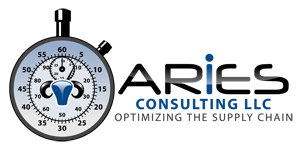At some point in the past these rates/quotas may have been scientifically developed; however, they generally are not maintained with accepted engineering techniques. For example, at ColorTile the selection employees were expected to pick 120 cases in an hour. No one knew how the original rate was determined. Each year when the new, more aggressive warehouse budget was approved, the expected selection pick rate was increased to match the needs of the budget.
A true Engineered Labor Standard is developed with accepted methodology found in the either of two Industrial Engineering Handbooks (Institute of Industrial Engineers or HB Maynard).
True Engineered Labor Standards have one of three sources:
- Predetermined Standards
- Time Study
- Work Sampling
True Engineered Labor Standards (ELS) utilize KVI/KPI data (such as units handled, pallets handled, distance traveled, etc.) from the Warehouse Management System (or entered manually) to determine the time required to perform a task. Generally, businesses will utilize a Labor Management System to collect the KVI/KPI data by task, apply the time values from the ELS source, and calculate a goal time (the Engineered Labor Standard) for each task.
If it sounds like a lot of work, that’s because it is. But performance efficiency and cost savings are what drives your profit margin, so the effort is always worthwhile. Your company can improve productivity from 15% to over 35% by implementing true engineered labor standards with a tier one labor management system and a gain share/incentive plan. Aries Consulting can be your trusted partner in helping you develop your company’s ELS.
The reality is…
Many companies hire Industrial Engineers with the thought of having their company IEs select a Labor Management System, develop Engineered Labor Standards, and successfully implement both in the workplace.
Unfortunately, today’s universities provide no effective training on the development and maintenance of Engineered Labor Standards today. Today’s IE graduates are trained in high level simulation, modeling, and optimization. Purdue (a premier educator of IEs) in the Fall 2013 curriculum has only one 3-credit hour course in work measurement.
A principle of Aries Consulting is: “Give a man a fish and feed him for a day, teach a man how to fish and feed him for a lifetime.” Let Aries Consulting train and develop your corporate IE as we help you select a Labor Management System, develop Engineered Labor Standards, and implement them in your company.
